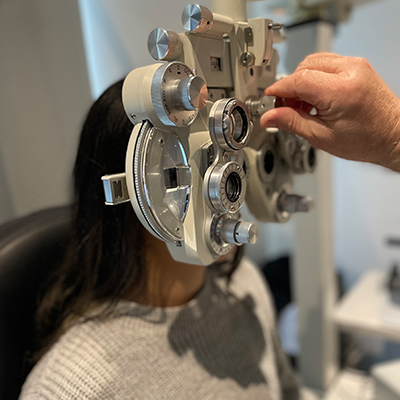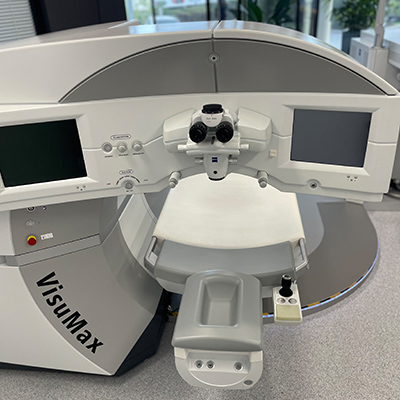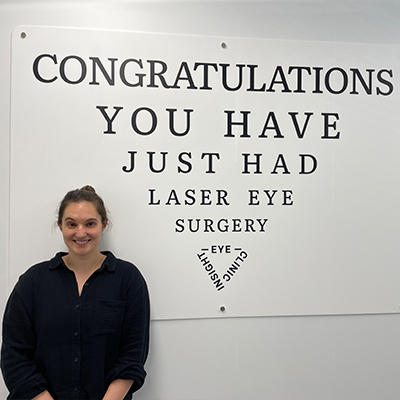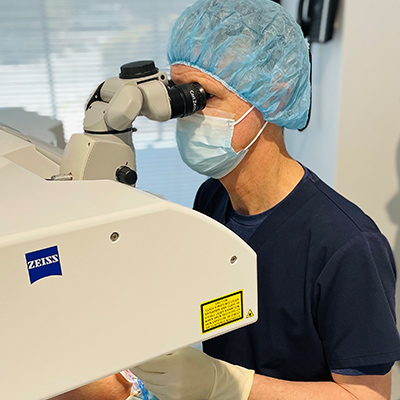Cataract Assessment Process
Cataracts can be diagnosed through a comprehensive eye examination. A full examination and counselling process takes approximately 3 hours and may include:
• Questions regarding your general health.
• Questions about your vision history, including any previous operations or injuries to your eyes. This helps us work out what difficulties you are having with your vision and the effect on your day-to-day activities.
• Measurement of your visual acuity to determine how much your distance and near vision may be limited by the cataract changes.
• Refraction to determine the need for changes in glasses or contact lens prescription.
• Evaluation of your natural lens using a slit lamp, which magnifies the lens and uses a very bright light to help decide the location and extent of any changes to your lens.
• Evaluation of the retina (back of the eye) to make sure it is healthy.
• Measurement of the pressure within your eye.
• A scan to measure your eye, which helps determine which is the best lens for your surgery.
Consultation
You will meet our Orthoptist who will apply a dilating eye drop to each eye to enlarge the pupil. This will allow Dr Furness to get a clear view of the inside and back of your eye. These drops work for approximately 4-5 hours and will likely cause your vision to be blurry and light sensitive. As a result, driving is not recommended during this time.
We may need to do other tests to determine the extent of the vision changes caused by the cataract and to check whether other eye diseases may limit your vision following cataract surgery.
Using the information obtained from these tests, Dr Furness can determine if you have cataracts. He will then advise you on options for treatment and which IOL (intraocular lens) is suited to your lifestyle needs.





